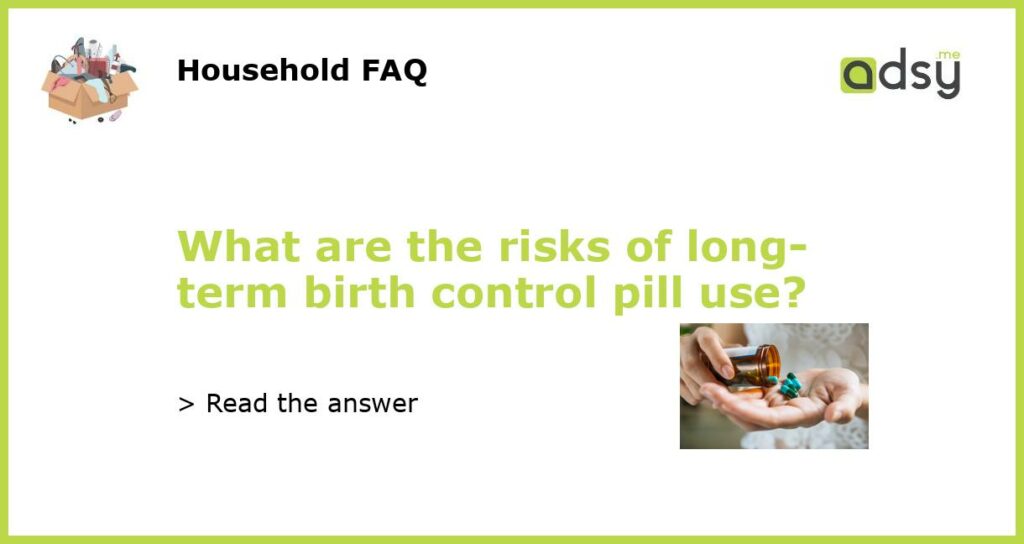The Risks of Long-Term Birth Control Pill Use
Birth control pills are one of the most common forms of contraception used by millions of women worldwide. These pills are designed to prevent pregnancy by inhibiting ovulation, thickening cervical mucus and thinning the lining of the uterus. However, long-term use of birth control pills can pose some serious risks to women’s health. Here are some of these risks:
Increased Risk of Blood Clots
Using birth control pills for an extended period of time can significantly increase the risk of developing blood clots, which can be fatal in some cases. This is especially true for women who smoke, are overweight, or have a history of blood clots. The risk is higher with pills that contain higher doses of estrogen. Women who experience leg swelling, chest pain, or shortness of breath while on the pill should seek medical attention immediately.
Higher Risk of Breast and Cervical Cancer
Long-term use of birth control pills can also increase the risk of breast cancer and cervical cancer. The risk decreases once the woman stops taking the pill, but it may take several years to return to the baseline level. Women should undergo regular breast and cervical cancer screening tests to catch any abnormalities early on.
Increased Risk of Cardiovascular Diseases
Studies have shown that women who use birth control pills for extended periods of time are at a higher risk of developing cardiovascular diseases such as heart attack, stroke, and hypertension. Women who have high blood pressure or smoke are at an even higher risk. It’s important to monitor blood pressure regularly and to make lifestyle changes, such as quitting smoking and adopting a healthier diet and exercise routine.
Impact on Fertility and Hormonal Balance
Long-term use of birth control pills can also have an impact on fertility and hormonal balance. Women may experience irregular periods, difficulty getting pregnant after stopping the pill, and changes in libido. The pill can also affect the balance of estrogen and progesterone in the body, leading to symptoms such as mood swings, depression, and anxiety.
Increased Risk of Liver Tumors
Although rare, long-term use of birth control pills has been linked to an increased risk of liver tumors. Women with a history of liver disease or liver tumors should not take birth control pills. Women who experience abdominal pain, jaundice, or swelling of the abdomen while taking the pill should seek medical attention immediately.






